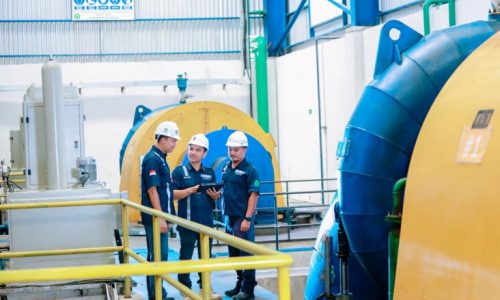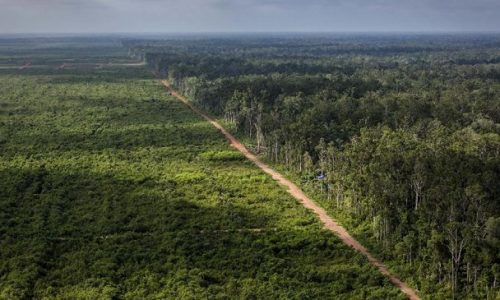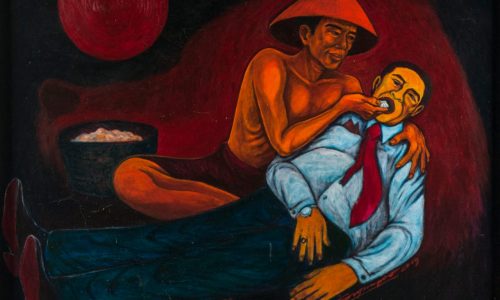Business players have anticipated heavier pressure on the national rubber industry in 2024 along with the planned implementation of the European Union’s Anti-Deforestation Law (EUDR), which will be effective from January 1, 2025. Under this regulation, operators that export commodities and their derivative products to EU members are required to prepare geolocation data of raw material sources.
Chairman of the Indonesian Rubber Council (Dekarindo) Aziz Pane said the EU Anti-Deforestation Law will clearly threaten the continuity of exports of the rubber industry and its derivative products such as rubber shoes/sandals and tyres.
He added t is not impossible that processed rubber factories will continue to collapse, while citing that even in the absence of this regulation, the national rubber market remains sluggish considering the declining trend of commodity production.
“The contribution of rubber exports to Europe is around 30-35 percent, so the Anti-Deforestation Law has a significant impact on the sustainability of Indonesia’s rubber industry,” Aziz said as quoted by Kontan on Sunday, January 28, 2024.
Referring to the Indonesian Rubber Statistics Report, Indonesia’s total natural rubber exports to Europe were recorded at 340,066 tons in 2022, a decrease of 13.18 percent year on year (YoY) compared to the realization in 2021, which was at 391,683 tons. Belgium became the largest importer of natural rubber from Indonesia in 2022 with a volume of 54,076 tons. Followed by Slovenia with 46,536 tons and Germany with 38,515 tons.
Dekarindo said the government must be active and courageous in diplomacy with the European Union so that Indonesian natural resource products can be accepted there, including rubber.
“The search for new export markets cannot be the sole solution for national rubber producers in facing the impact of the EU’s Anti-Deforestation Law,” Aziz said.
“The private sector cannot work alone, it is the government that must step in to encourage exports to Europe,” he added.
Indonesia does not have much time to anticipate the implementation of the EU Anti-Deforestation Law. Moreover, there are already several EU countries that have begun to explore opportunities for rubber export cooperation from producers other than Indonesia.
Dekarindo also does not believe that national rubber production will improve in 2024 when reflecting on the current condition of the industrial sector.
Previously, Executive Director of the Indonesian Rubber Company Association (Gapkindo) Erwin Tunas revealed that natural rubber production in Indonesia has declined since 2018 until now. If in 2017 national rubber production reached 3.68 million tons, then in 2023 it is estimated to only reach 2.44 million tons.
“Over the past six years there has been a decline in rubber production of 1.24 million tons,” Erwin said last week.
The subsector most affected by the decline in natural rubber production in Indonesia is rubber processing factories that process rubber raw materials from plantations into crumb rubber (SIR). Currently, the utilization of crumb rubber factories has been reduced to below 50 percent.
In Gapkindo’s records, over the past six years (2018-2023) there have been 48 crumb rubber factories that have gone out of business. From a total of 152 factories at the beginning of the period, there are currently only 104 factories operating in the country.
Experts say that the main causes of the decline in national rubber production in recent years include the conversion of rubber plants to other crops, the presence of leaf fall disease Pestalotiopsis sp, the lack of tappers, the age of the majority of rubber trees, and relatively low rubber prices.
Based on the Trading Economics website, the price of natural rubber in the global market was at 153 US cents per kilogram on Friday, January 26, 2024, or down 0.84 percent from the previous day. Recently, rubber prices have been rebounding after falling in the middle of last year.
In contrast to Dekarindo, Gapkindo remains optimistic that the productivity of Indonesia’s rubber plantations will increase by 2024. This is in line with reports of reduced attacks of Pestalotiopsis sp leaf fall disease and expectations of an end to the rate of rubber plantation conversion.
Therefore, Gapkindo expects national rubber production to increase above 2.6 million tons this year.









